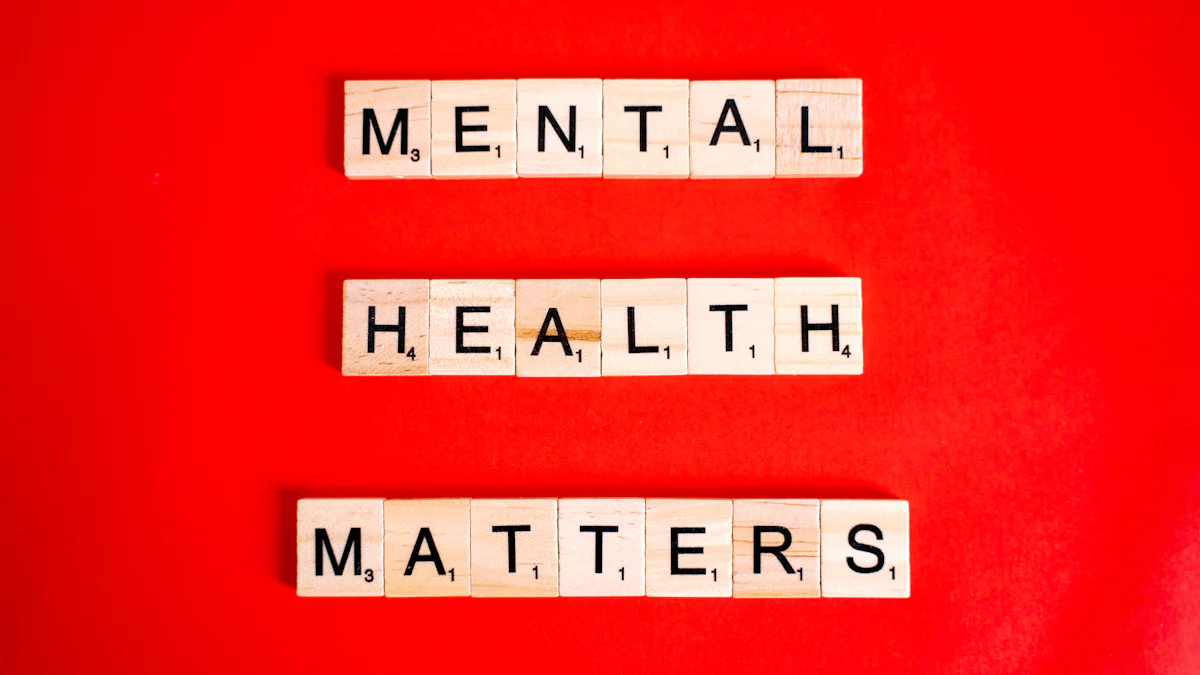
Mental health shapes every aspect of life. This vital component influences thoughts, emotions, and interactions. A strong mental state helps you handle stress and make healthy choices. Nearly 1 in 5 American adults face a diagnosable mental health condition each year. Understanding mental health empowers individuals to seek help and support. Embrace the journey toward mental well-being. Recognize the importance of mental health in daily life. Prioritize mental health for a fulfilling and balanced existence.
Understanding Mental Health
Definition and Scope of Mental Health
Mental health encompasses various aspects of life. Emotional well-being plays a crucial role in mental health. Emotions influence thoughts and actions. A balanced emotional state helps you manage stress effectively. Positive emotions enhance relationships and decision-making.
Psychological well-being forms another pillar of mental health. This aspect involves cognitive processes and perceptions. Clear thinking and problem-solving abilities reflect strong psychological health. A healthy mind adapts to challenges and changes.
Social well-being completes the mental health framework. Social interactions impact mental health significantly. Supportive relationships foster a sense of belonging. Engaging with others promotes positive mental health. Strong social connections enhance overall well-being.
Factors Influencing Mental Health
Several factors influence mental health. Biological factors contribute to mental health conditions. Genetics play a role in predispositions to certain disorders. Brain chemistry affects mood and behavior. Physical health impacts mental well-being.
Life experiences shape mental health outcomes. Traumatic events leave lasting effects on mental health. Stressful situations challenge coping mechanisms. Positive experiences build resilience and strength. Life transitions affect emotional and psychological states.
Family history influences mental health development. Family dynamics impact emotional well-being. Patterns of behavior pass through generations. Supportive family environments promote mental health. Awareness of family history aids in understanding mental health risks.
Recognizing Mental Health Conditions
Anxiety Disorders
Anxiety disorders affect millions of people worldwide. These disorders include generalized anxiety disorder, panic disorder, and phobias. Symptoms often involve excessive worry and fear. Physical symptoms like increased heart rate and sweating may occur. Anxiety can disrupt daily activities and relationships. Early intervention and treatment improve outcomes.
Mood Disorders
Mood disorders impact emotional states significantly. Depression and bipolar disorder are common examples. Depression causes persistent sadness and loss of interest. Bipolar disorder involves mood swings between highs and lows. Mood disorders affect energy levels and concentration. Treatment options include medication and therapy.
Schizophrenia and Psychotic Disorders
Schizophrenia and psychotic disorders alter perceptions of reality. Symptoms include hallucinations and delusions. These disorders affect thinking and behavior. Early diagnosis and treatment are crucial. A combination of medication and psychotherapy often helps. A case study showed successful treatment with atypical antipsychotics and psychotherapy. The patient experienced no delusions or hallucinations after treatment.
Early Warning Signs of Mental Health Issues
Changes in Mood
Sudden changes in mood indicate potential mental health issues. Frequent mood swings or prolonged sadness may occur. Irritability and anger without clear reasons can arise. Monitoring mood changes helps identify underlying problems. Seeking professional help provides guidance and support.
Withdrawal from Social Activities
Withdrawal from social activities signals mental health concerns. Avoiding friends and family becomes common. Isolation leads to feelings of loneliness and despair. Engaging in social interactions promotes well-being. Supportive relationships offer comfort and encouragement.
Changes in Eating or Sleeping Patterns
Changes in eating or sleeping patterns reflect mental health struggles. Overeating or loss of appetite may develop. Insomnia or excessive sleeping disrupts daily routines. Maintaining regular eating and sleeping habits supports mental health. Professional guidance assists in restoring balance.
Managing Mental Health
Self-care Strategies for Mental Health
Regular Exercise
Regular exercise boosts mental health significantly. Physical activity releases endorphins, which improve mood. Exercise reduces stress and anxiety levels. Consistent workouts enhance self-esteem and confidence. Choose activities that bring joy and satisfaction.
Healthy Eating
Healthy eating supports mental well-being. Nutrient-rich foods fuel the brain. Balanced meals stabilize mood and energy. Omega-3 fatty acids and antioxidants benefit mental health. Incorporate fruits, vegetables, and whole grains into meals.
Adequate Sleep
Adequate sleep restores mental health. Quality rest rejuvenates the mind and body. Sleep improves concentration and decision-making. Establish a consistent sleep schedule for better results. Create a calming bedtime routine to promote relaxation.
Professional Help and Resources
Therapy and Counseling
Therapy and counseling provide valuable support. Professional guidance addresses mental health challenges. Therapists offer coping strategies and insights. Cognitive Processing Therapy aids trauma recovery. Seek therapy for personalized mental health care.
Medication
Medication assists in managing mental health conditions. Prescriptions balance brain chemistry. Medications alleviate symptoms of disorders like depression and anxiety. Consult healthcare providers for appropriate treatment options. Follow prescribed plans for optimal results.
Support Groups
Support groups offer community and understanding. Shared experiences foster connection and empathy. Group members provide encouragement and advice. Participation enhances coping skills and resilience. Join support groups for collective healing and growth.
Understanding mental health transforms lives. Recognize the importance of seeking help and utilizing resources. Sami discovered running as a powerful tool for mental well-being. Heather found solace in nature walks. Healthy relationships, as H emphasized, play a crucial role. Bethan highlighted kindness's impact on mental health. Ashleigh connected with supportive LGBTQIA+ groups. Grant realized exercise's benefits through marathon running. Each story offers hope and support. Embrace these insights to foster your mental health journey. Prioritize self-care and reach out for assistance. You hold the power to improve your mental well-being.





.jpg)

